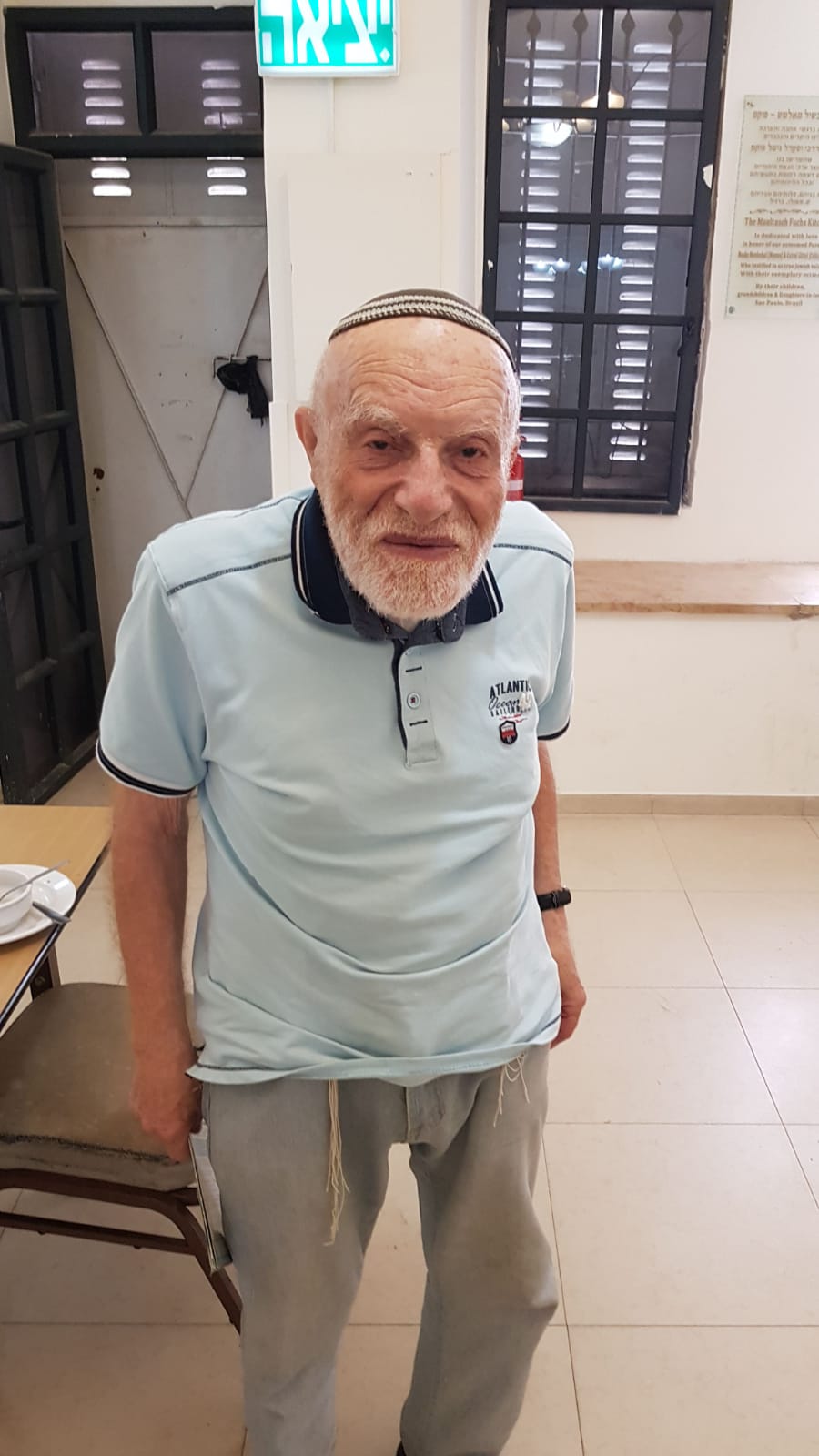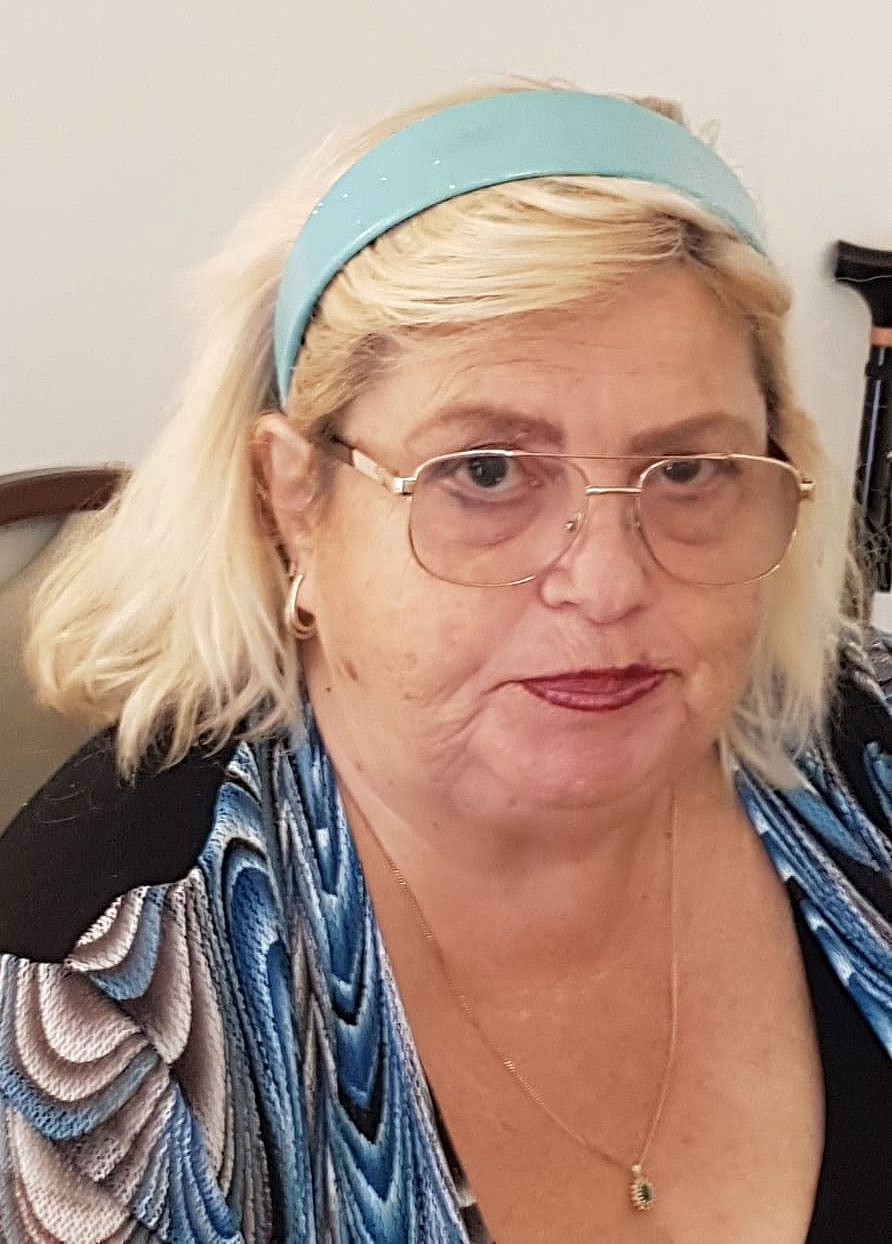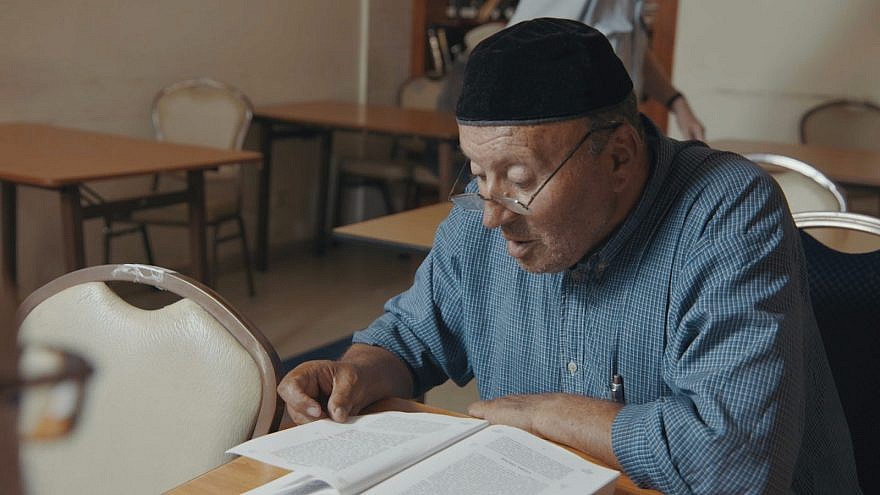Yosef Damsker, 86, is a thin man with a gray beard and a large yarmulke. But when he moved to Israel from Leningrad (today, St. Petersburg) in 1990, he was not only secular, he knew very little about his Jewish background, except for fasting on Yom Kippur.
These days a widower who lives in the Talpiot neighborhood of Jerusalem, he studies Torah every morning at Colel Chabad’s Kollel Tiferes Zekeinim Levi Yitzchak in the Nahlaot neighborhood of Jerusalem. The kollel, whose name in English means “the kollel for the glory of the aged in the name of Levi and Isaac,” is a special program for elderly Jews, most of whom live alone and on limited incomes.

“I come to eat lunch and connect with my friends,” he told JNS. “I am so happy to be here.”
A kollel generally refers an institute for full-time, advanced study of the Talmud and rabbinic literature. But the Lubavitcher Rebbe—Rabbi Menachem Mendel Schneerson, longtime leader of the Chabad-Lubavitch movement—fostered kollel-like Torah-study programs for the elderly and retired, both men and women. The first ones opened in 1980 around the world, with the first in Israel established in
1988.
The program celebrated its 30th anniversary in Israel over the summer. Today, seven kollels operate for the elderly in four cities in the country—Jerusalem, Ashdod, Ashkelon and Tzfat—all administered by Colel Chabad, Israel’s oldest operating charitable organization, established in 1788 by the first Lubavitcher Rebbe, Rabbi Schnuer Zalman of Liadi. Approximately 250 students come to study in the various kollels.
According to Rabbi Itzik Marton of Colel Chabad, Schneerson’s teaching were centered on the understanding that even when a person retires from a traditional profession, he or she can still offer a great deal to the spiritual uplifting of those around them.
Elderly people are “not just those who have finished their jobs, and are not just people who are waiting, God forbid, for the end of their days,” said Dr. Yakir Kaufman, a behavioral neurologist and acting medical director of Herzog Hospital in Jerusalem. “On the contrary, this is a time of great creativity.”
He said the program offers the elderly a “better state of well-being and health.”
Shay Vizel directs the Jerusalem program. He told JNS that around 75 people learn in the morning kollel—most of them survivors, around 40 men and 35 women—and another 35 men attend a similar program at night.
“Some 90 percent of participants live alone. They wait to come to kollel every day to get their warm lunch and connect,” he said, explaining that Colel Chabad also hands out food cards to participants and provides them with a small stipend for coming to learn.
“They become like a family,” Vizel said of the participants. “As people pass away, the participants say Kaddish [mourner’s prayer] for their late friends.”
‘Happiness for the mind and soul’
It’s hard to find members of the kollel who are willing to tell their stories. That’s because the people who attend “are smart people who were very successful in their younger years,” according to Nina Avni, who works with Colel Chabad and offers support services to the members that range from helping them sign their apartment contracts, to receiving Holocaust reparations and more. “They don’t want to talk about their difficulties.”
Ethel Abramovitch, 80, agreed to tell her story. An engineer who moved to Israel from Ukraine, she said she revels in the chance to once again be a student, despite her advanced age.

“Coming to learn Torah with others actually makes me feel healthier,” she said. “I know I am with friends and people who think and believe just like me, which gives me happiness, both for my mind and soul.”
Even though Abramovitch travels by bus to the Nahlaot kollel from the northeast Jerusalem suburb of Pisgat Ze’ev, which can take up to 45 minutes each way, she tries never to skip a day. She told JNS that in Ukraine, she knew very little about her Jewish background. Now, “I learn what it is to be a Jew. This is very important to me.”
Like the others, Abramovitch lives alone; her husband passed away. She said her son lives in Israel, but he is busy with his own children. If left on her own, she said, she would likely not cook for herself.
“The food here is very tasty,” she said. “I come here to eat among friends. I don’t want to be anywhere else.”


























